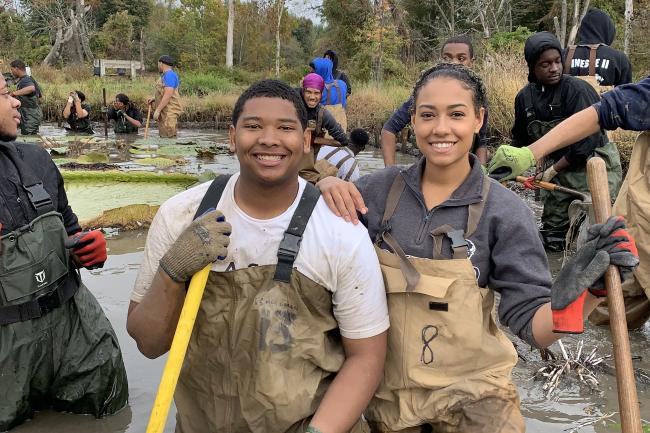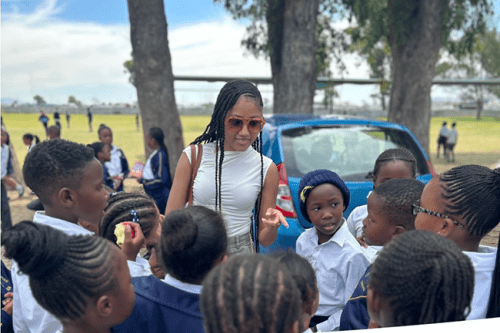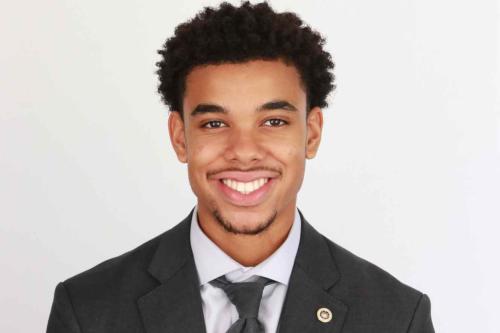When Waves of Change HBCU, Inc. founder Rachel Clark began her studies at Howard University in 2018, she viewed her passion for the environment as one reserved for white people in white spaces. A trip to Los Angeles in 2019 changed her perspective of both the movement and of Black culture.
Growing up in coastal Massachusetts, Clark was surrounded by wildlife and consistently engaged in nature-based activities. The degradation of the environment and impact of climate change was easy to see as she grew up. She developed a passion for environmental advocacy and learned of its adverse impacts on the Black and Indigenous communities. “We’re actually hit harder than any other population within the United States, when you look at redlining, at our diet, lack of affordable access to clean food. We live in areas that were built upon literal toxic waste,” says Clark.
Her advocacy, however, took a backseat to a desire for conformity in her first year of college. The faces of environmentalism in the popular media are most often white and tout the impact of climate change on the ozone layer and wildlife, although the issue most greatly impacts the everyday lives of people of color. A change of perspective was triggered just a year later.
“There is a danger that we face anytime we’re in spaces that we’re new to. We face the pressure to sacrifice who we are to engage in what we’re passionate about.”
While in Los Angeles completing a Summer internship at an aerospace engineering firm in 2019, Clark heard about the “Hottie Beach Cleanup” hosted by then emerging Texas rapper, Megan Thee Stallion, which attracted hundreds of fans. It made Clark view her community in a new way. “It was the first time I got to see so many Black people doing environmental service work,” says Clark. “That helped me see that, it’s not that our community doesn’t want to engage in environmental service, but it’s that we don’t have spaces dedicated to us for it.”
In 2019, Clark founded Waves of Change HBCU, Inc., a non-profit organization that seeks to engage the Black community in the environmental sustainability movement through education, advocacy and service.
Waves of Change partners with local Black fraternities and other organizations to hold community cleanup events. They also visit local elementary and middle schools to educate the youth about the importance of the environment.
Clark’s hope is that youth focused advocacy will plant seeds for the future. “You don’t see the return right away, but when the children do grow up, we hope that the seed we planted will be able to grow and blossom into lawmakers, teachers and lawyers who are going to pass on the message and fight for people’s rights,” she says.
The organization’s Instagram account serves as a platform for educational opportunity and expansion of the organization. Every year since 2019, a new chapter of Waves of Change has been established at an HBCU. In 2020, a chapter was established at North Carolina A&T University, and, in 2021, Prairie View A&M University got involved.
Waves of Change differentiates itself from other environmental advocacy groups by putting Black culture on display at events. Community events are organized to feel like a party where everyone can feel comfortable. Hip-hop and other Black music is played throughout the events, and participants are encouraged to show up as their true selves. Clark believes that because Black people have been excluded from the conversation of climate change in the past, it is imperative that spaces are created that make them feel comfortable.
“There is a danger that we face anytime we’re in spaces that we’re new to. We face the pressure to sacrifice who we are to engage in what we’re passionate about,” says Clark.
Waves of Change HBCU, Inc. emphasizes the idea that Black people must be recognized as the center of the movement for environmental change. Civil rights and sustainability are one and the same as Black communities are among the most severely impacted. According to Clark, “You can’t say Black Lives Matter without also having a conversation about environmentalism.” Waves of Change and all its chapters are committed to emphasizing this point and maintaining space for Black people to advocate for every issue affecting their communities.
For more information on Waves of Change, visit its Instagram page: @wavesofchangehbcu





